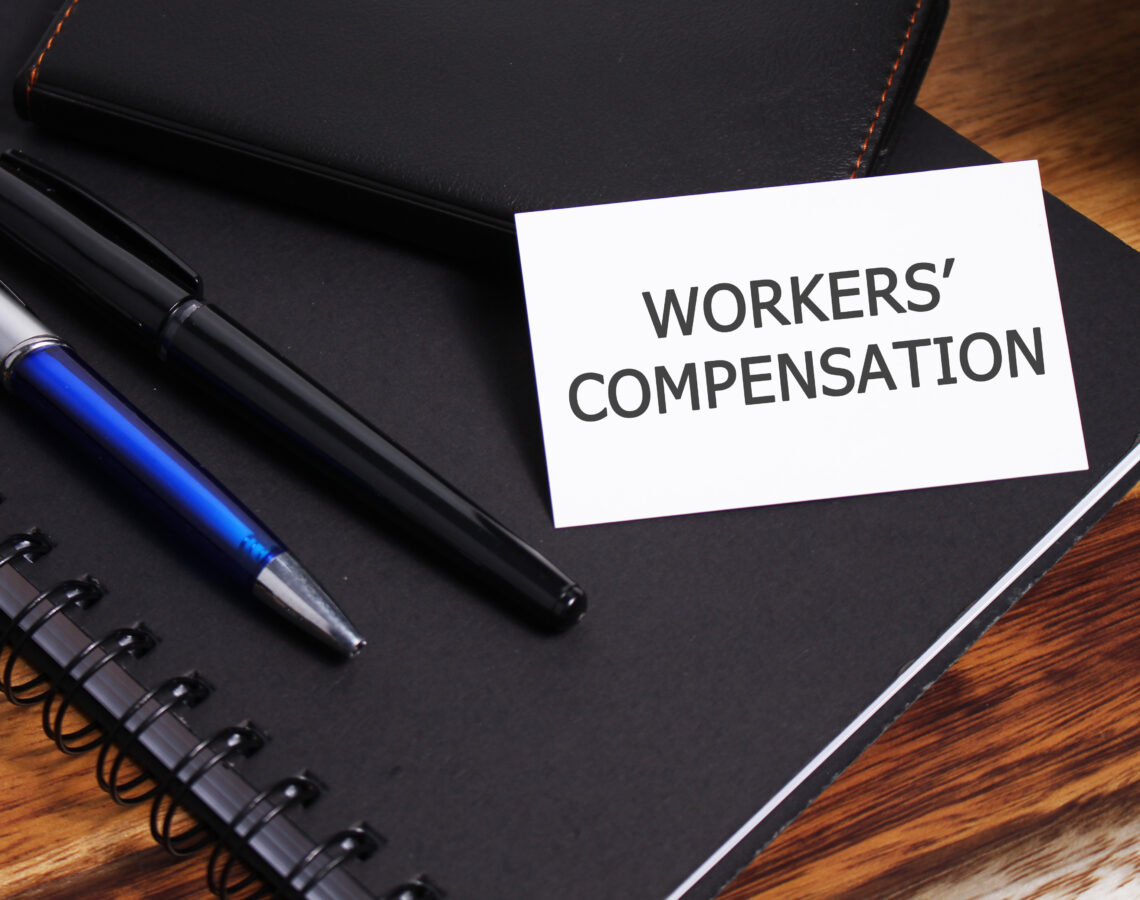Workers’ Comp and Third-Party Lawsuits

Suffering injuries at work can have a devastating impact on your life. Not only are you dealing with physical pain and recovery, but you may also face financial hardships due to lost income and medical expenses. While a work injury can happen in an instant, the effects of the injury can be costly and last for months or years.
While workers’ compensation benefits can provide some relief, there are situations where a third-party lawsuit may also be necessary to fully recover. Read on to explore the concept of third-party lawsuits in workers’ compensation cases and the importance of consulting with an Indianapolis workplace accident lawyer to understand your options.
A Work Injury Can Derail Your Life
Work injuries can be unexpected and profoundly impact every aspect of your life. From the moment the accident occurs, you may find yourself facing unexpected medical treatment, mounting bills, and the challenging journey of recovering both physically and emotionally.
In addition to the physical pain and suffering, injured workers often find themselves grappling with the financial consequences of their injury, including lost income from missing work and limitations on their everyday activities.

One of the most immediate concerns for injured workers is the unexpected medical treatment and the resulting bills. Depending on the severity of your injury, you may require surgery, ongoing therapy, medication, and other treatments to aid in your recovery.
These medical expenses can quickly add up, placing an additional burden on an already difficult situation. However, seeking the assistance of an attorney can help alleviate this financial pressure by advocating for compensation for all necessary medical treatment and related expenses.
In addition to medical expenses, injured workers often face the challenge of lost income from missing work. When you cannot perform your job duties due to a work-related injury, you may be left without a source of income to support yourself and your family.
This loss of income can lead to significant financial strain, making it difficult to meet your basic needs and financial obligations. An attorney can navigate the workers’ compensation system and seek the appropriate benefits to replace your lost income and provide financial stability during your recovery.
Beyond the financial impact, work injuries can also limit your everyday activities. Simple tasks that were once effortless may now require additional effort or be completely impossible due to your injury.
These limitations can affect your physical abilities, emotional well-being, and overall quality of life. An attorney can explain your rights and pursue compensation for these limitations, ensuring you receive the support you need to restore your daily functioning and regain independence.
Furthermore, the ramifications of a work injury can extend far beyond the immediate recovery period. Depending on the nature and severity of your injury, you may face long-term or permanent consequences that impact your ability to return to your previous chosen profession. 
This can significantly damage your career, financial stability, and overall future prospects.
By working with an attorney, you can explore your options for vocational rehabilitation, retraining, and pursuing appropriate compensation for the impact on your earning potential.
A work injury can have a devastating impact on your life. From unexpected medical treatment and bills to lost income, limitations on everyday activities, and potential long-term consequences, injured workers often face many challenges.
Seeking the assistance of an attorney can address these complexities, ensure you receive the necessary medical treatment and financial support, and provide the guidance and advocacy needed to rebuild your life after a work injury.
Can You Seek Workers’ Compensation Benefits?
If you’ve suffered an injury on the job, you may wonder if you are eligible for workers’ compensation benefits. In most cases, the answer is yes.
Workers’ compensation provides financial and medical support to employees who suffer work-related injuries or illnesses. It is a no-fault system, meaning you can receive benefits regardless of who caused the accident.
Workers’ Comp is a No-Fault System
In a no-fault system, injured workers are eligible for workers’ compensation benefits regardless of who is to blame for the accident. This means that you can still receive benefits even if the injury resulted from your own mistake or negligence.
Workers’ compensation is a safety net for injured workers, ensuring they receive the necessary medical treatment and income replacement while recovering from their injuries.
What Does Workers’ Comp Cover?
Workers’ compensation benefits typically cover two main areas: medical treatment and partial income replacement.
Medical Treatment
When you file a workers’ compensation claim, your employer’s insurance should cover all necessary medical treatment for your work injury. This includes doctor’s visits, surgeries, medication, physical therapy, and any other medical expenses directly related to your recovery.
Partial Wage Replacement
Workers ‘ compensation benefits provide partial income replacement while you cannot work due to your work-related injury. The amount you receive will vary depending on your income and the severity of your injury.
Workers’ comp benefits typically replace a percentage of your average weekly income, allowing you to meet your financial obligations while you cannot work.
Do You Have the Right to File a Third-Party Injury Claim?
While workers’ compensation benefits can provide crucial support after a work injury, they may not fully compensate you for all the losses you have suffered.
In some cases, you may file a third-party injury claim if someone else’s negligence or misconduct caused your work-related injury.
Examples of Third-Party Liability for Work Injuries
Workplace injuries can happen in various ways, and in some cases, a third party may be responsible for the accident. If you have suffered an injury on the job, understand you may have a legal right to seek compensation from other parties involved. Here are some examples of third-party liability for work injuries.
Vehicle Accidents by Other Drivers
If you suffered an injury in a car or truck accident while on the job due to another driver’s negligence, you can hold that driver accountable. This can include situations where you were driving a company vehicle or simply traveling to a work-related location.
For example, if you are a delivery driver involved in a collision with a reckless driver, you may have a claim against that driver for your injuries.
Defective Equipment
Workplaces rely on various types of equipment to get the job done. If you suffered an injury due to a defective or malfunctioning piece of equipment, you may have a claim against the manufacturer or distributor of that equipment.
Common examples of defective equipment leading to work injuries include faulty machinery, tools, or safety gear. It’s important to gather evidence and consult an attorney to determine whether you have a valid product liability claim.
Contractor Negligence on Construction Sites
Construction sites are inherently dangerous places, and injuries are not uncommon. If you suffered an injury at a construction site, a contractor or subcontractor’s negligence may have contributed to the accident.
For example, if a contractor fails to properly secure scaffolding, which leads to a fall and injury, you may pursue a claim against that contractor. Other examples include inadequate safety measures or failure to follow industry regulations.
After work injuries, it benefits you to explore all possible avenues for compensation. An experienced workplace injury attorney can determine if you have a valid claim against a third party. They will guide you through the legal process, gather evidence, negotiate with insurance companies, and fight for the compensation you deserve.
Don’t hesitate to reach out for legal assistance if you’ve suffered an injury on the job and believe someone else may be at fault. Remember, you have the right to seek justice and fair compensation for your injuries.
You Must Prove Fault
Unlike workers’ compensation claims, where fault is not a factor, a successful third-party injury claim requires you to prove the negligence or wrongdoing of the responsible party.
This means gathering evidence, such as witnesses’ statements, photographs, medical records, and other documentation supporting your claim. Proving fault in a third-party lawsuit can be complex, which is why you should hire a work injury attorney who handles these types of cases.
You Can Seek Additional Damages in a Third-Party Claim
One significant advantage of pursuing a third-party injury claim is that you can seek additional damages beyond what workers’ compensation benefits offer. While workers’ comp covers medical treatment and partial income replacement, a third-party lawsuit can potentially provide compensation for the following:
Full Lost Earnings
If your work-related injury has left you with long-term or permanent disabilities that prevent you from returning to your previous job or earning capacity, a third-party lawsuit allows you to seek compensation for your full lost earnings. This can make a significant difference in your financial stability and future.
Pain and Suffering and Other Non-Economic Damages
Workers’ compensation benefits typically do not cover intangible losses such as pain and suffering, emotional distress, or loss of enjoyment of life. However, in a third-party lawsuit, you may seek compensation for these non-economic damages. These damages compensate you for the physical and emotional hardships you endured due to your work-related injury.
Will Your Workers’ Comp or Third-Party Claim Go to Court?

When you’re dealing with a workers’ compensation or third-party claim, one question that often arises is whether your case will end up in court. While every situation is unique, not all claims go to trial. In fact, many cases resolve through negotiations or alternative dispute resolution methods.
In the case of workers’ compensation claims, the goal is to provide injured workers with compensation for their medical expenses, lost income, and other related costs.
The workers’ compensation system is a no-fault system, meaning you don’t have to prove that someone else was responsible for your injury or illness. Instead, you just need to show that your injury or illness was work-related.
In most cases, workers’ compensation claims are resolved without going to court.
The process typically involves:
- Filing a claim with your employer’s insurance company.
- Providing medical documentation of your injury or illness.
- Negotiating a settlement.
However, if the insurance company does not offer proper benefits or a full settlement, your case may need to proceed to a formal hearing before a workers’ compensation judge.
Similarly, third-party claims, which involve injuries caused by someone other than your employer or co-worker, can often be resolved without going to court. These claims typically involve seeking compensation from another individual or entity that may have caused your injury, such as a manufacturer of faulty equipment or a negligent driver. In many cases, these claims can be settled through negotiations or mediation.
While it’s impossible to predict with certainty whether your work comp or third-party claim will go to court, many cases are successfully resolved through negotiation or alternative dispute resolution methods.
Hiring an experienced attorney who handles workers’ compensation and personal injury law can greatly increase your chances of achieving a favorable outcome without needing a courtroom battle.
Always Consult a Work Injury Attorney to Know Your Options
Suffering a work-related injury can be a life-altering event. While workers’ compensation benefits provide essential support, they may not fully compensate you for all your losses.
That’s where third-party injury claims come into play. By pursuing a third-party lawsuit, you can seek additional damages and receive full compensation for your injuries.

Remember, consulting a work injury attorney is crucial to understanding your options and ensuring you receive the compensation you deserve. Take action today and protect your rights.
Further, once you know your rights, navigating the complexities of workers’ compensation and third-party lawsuits can be overwhelming, especially when you are already dealing with the physical and emotional aftermath of a work injury. That is why you must consult a work injury attorney who can evaluate your case and advise on your legal options.
A work injury attorney handles both workers’ compensation and third-party injury claims. They have the experience and knowledge to guide you through the process, protecting your rights and ensuring you receive the full compensation you deserve.

